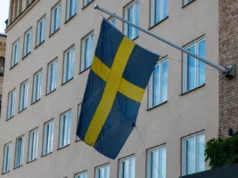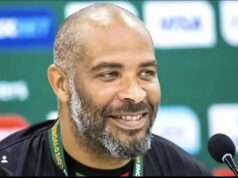The recent media interview granted by Nigeria’s former Military President, General Ibrahim Badamasi Babangida (IBB), in which he advised Nigerians to vote a President in his 60s at the 2023 election may have put the likes of Asiwaju Bola Ahmed Tinubu, former governor of Lagos state and Atiku Abubakar, former Nigerian Vice President at a disadvantageous position as both top political figures believed to have an eye at the presidency will be their 70s by the next election.
The description also favours one of Babangida’s top loyalists, former governor of Abia state, currently Chief Whip of the Nigerian Senate, Dr. Orji Uzor Kalu.
Although Orji Kalu, one of the leaders of APC in the South East had maintained that his concern at the moment is to serve his people of Abia North in the Senate, saying he is not concerned about 2023 since God is the Giver of power.
According to IBB, Nigeria has not made meaningful progress in achieving the dreams of its founding fathers because Nigerians no longer believed in the future of their own country.
Although the former Nigerian leader did not mention anyone as ineligible for the nation’s number one seat, he however suggested that individuals in their 60s should be the focus of Nigerians as potential presidential candidates in 2023.
Findings by our correspondent reveals that at the next general election in 2023, Atiku, who is 75 this year would be 77, while Tinubu, who marked an official 69th birthday in March, would have turned 71 years.
Babangida, who himself will be 80 on August 17 this year, was confident that the nation is endowed with both human and natural resources, hinted at a few individuals, whom he said were in their 60s, had the capacity to become president and could effectively run the country.
The former leader, who accused the Nigerian people of creating and at the same time, destroying their own country, identified bad leadership as yet a major reason for the socio-economic challenges facing Nigeria.
Talking about the presidential hopefuls he had in mind, IBB said they were persons in their 60s with contacts across the nation and who had been traversing the geo-political zones marketing their acceptability and capacity.
Abia state born businessman, politician, and football enthusiast perfectedly falls into IBB’s description. Kalu is 61 and ranks as the most detribalized Nigerian with friendship cut across the shores of the nation and beyond
Specifically on the importance of leadership in nation-building and where he thought the likes of Atiku and Tinubu no longer fit the bill, IBB said: “If you get a good leadership that links with the people and tries to talk with the people; not talking on top of the people, then we would be okay.
“I have started visualising a good Nigerian leader. That is, a person, who travels across the country and has a friend virtually everywhere he travels to and he knows at least one person that he can communicate with.
“That is a person, who is very verse in economics and is also a good politician, who should be able to talk to Nigerians and so on. I have seen one, or two or three of such persons already in his sixties.”
But when asked if the person could emerge victorious in the 2023 presidential election, the Minna-born former military leader said, “I believe so if we can get him.”
Responding to a question on whether or not he still believed in the future of Nigeria, the former military president, who turns 80 on August 17, 2021, said: “I do believe in the future of Nigeria, but Nigerians don’t believe in the future of their country. They created and they destroyed.”
Reiterating his belief in the future of Nigeria and urging Nigerians to remain patriotic, Babangida, who claimed to feeling good as he was about to turn 80 years, with gratitude to God for sparing his life, advised Nigerians to go for the person that has what it takes to transform the country when the time comes.
IBB served as head of state between 1985 and 1993. Born in Niger State, he received military training in Nigeria, India, Great Britain, and the United States.
He rose through the ranks and was known for his courage, having also played a major role in suppressing an attempted coup in 1976, when he walked into a rebel-held radio station unarmed.
After Murtala Mohammed became the military head of state in 1975, Babangida joined his Supreme Military Council, and as military president after taking over power on August 27, 1985, he introduced economic policies such as the Structural Adjustment Programme (SAP), that altered the course of the nation and liberalise the economy.
At 80 on the 17th, Babangida is one of the leaders like Muhammadu Buhari who have dominated Nigeria’s political space since 1966.

![Late Chinyere Gladys Mbakwe Set For Burial Feb. 20 In Umuahia [SEE POSTER] Mrs. Chinyere Gladys Maduabuchi Mbakwe Set For Burial Feb. 20 In Umuahia [SEE POSTER]](https://abntv.com.ng/wp-content/uploads/2026/02/FB_IMG_1771516412563-238x178.jpg)


![Late Chinyere Gladys Mbakwe Set For Burial Feb. 20 In Umuahia [SEE POSTER] Mrs. Chinyere Gladys Maduabuchi Mbakwe Set For Burial Feb. 20 In Umuahia [SEE POSTER]](https://abntv.com.ng/wp-content/uploads/2026/02/FB_IMG_1771516412563-300x194.jpg)




![Late Chinyere Gladys Mbakwe Set For Burial Feb. 20 In Umuahia [SEE POSTER] Mrs. Chinyere Gladys Maduabuchi Mbakwe Set For Burial Feb. 20 In Umuahia [SEE POSTER]](https://abntv.com.ng/wp-content/uploads/2026/02/FB_IMG_1771516412563-100x75.jpg)